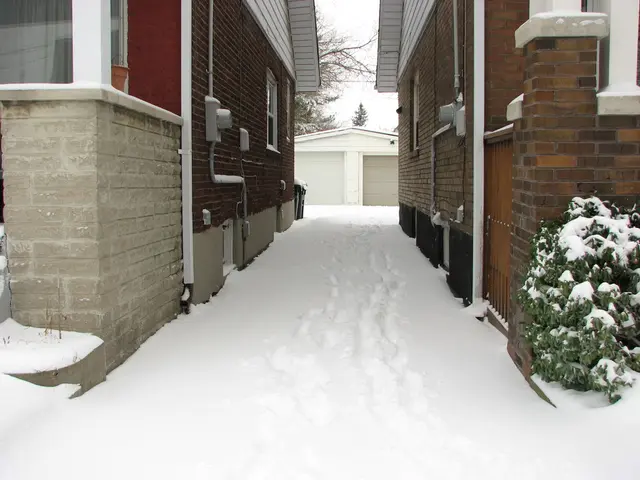Renters' Group Argues for More Rent Regulation beyond the Proposed Extension - Rental price insufficient for maintaining affordable rental rates
The Berlin Tenant Association welcomes the proposed extension of Germany's rental price brake, but deems it insufficient without federal-level application. Wibke Werner, the association's managing director, told the German Press Agency that the rental price brake is the sole means of limiting rent increases in new leases, particularly in Berlin, which is a hotspot for the measure.
The federal cabinet has put forth a bill to prolong the legal rental price brake until December 31, 2029. Under this extension, rent cannot exceed ten percent above the local comparable rent for newly let flats. However, the extension would also expire in Berlin by the end of 2025 if not continued at the federal level, leaving tenants without protection when signing new leases.
The Tenant Association voices criticisms against exceptions to the rental price brake, especially for new buildings completed after 2014, which are currently exempt. Werner urges revisions to the exemption, as she deems it unjustifiable for an eleven-year-old house to still be classified as new. In Berlin, annual construction of around 15,000 apartments necessitates this change.
Additionally, the Tenant Association finds issues with the rental price brake's applicability in cases of comprehensive modernization and temporary rentals. Abuses occur when landlords claim comprehensive modernization but do not actually carry out sufficient improvements, and the association calls for urgent remedies.
The extension and improvement of the rental price brake involve legislative and policy steps addressing national application, exceptions for new buildings, and rules for comprehensive modernization. Tenant associations demand stricter regulation of the housing market, such as the municipalization of housing companies to prevent profiteering landlords and create more affordable housing.
Furthermore, the Berlin Tenant Association advocates for a rent cap, which was struck down by the Federal Constitutional Court in 2021 on the grounds of state competence. The association proposes an opt-out clause that would enable federal states to enact such laws. This measure is still relevant due to the rental price brake's less-than-adequate performance in its intended role.
The extension and improvements sought by the Berlin Tenant Association and other tenant associations will require legislative action and ongoing discussion regarding the balance of tenant protection, housing market forces, and constitutional considerations.
The Berlin Tenant Association suggests that the rental price brake extension, currently proposed until 2029, should be applied at a federal level to secure tenant protection in Berlin beyond 2025. The Association is also calling for revisions in the exemption of new buildings completed after 2014, as they believe it is unjustifiable for an eleven-year-old house to still be classified as new. Furthermore, the Association advocates for stricter regulations in cases of comprehensive modernization and temporary rentals to prevent abuses and ensure a fair housing market. To achieve this, they propose stricter regulation of the housing market, including the municipalization of housing companies and implementation of an opt-out clause for rent cap laws. This would require legislative action and ongoing discussions at both federal and state levels, involving policy adjustments for industries such as real-estate and finance, while considering investments in vocational training to foster a skilled workforce in the construction industry for increased housing supply.







